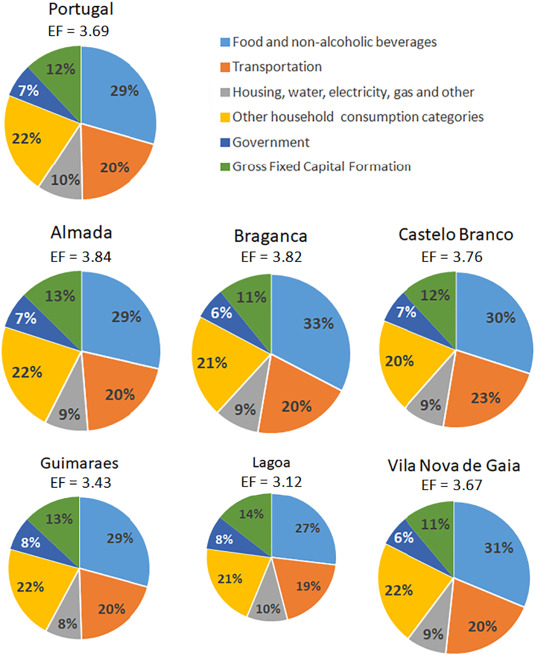A study of the transition to a sustainable food system in Portugal reveals challenges with regards to the sustainability of Portuguese food standards as well as the fragility of local food policies throughout the country.
Since food consumption represents about 30% of Portugal’s Ecological Footprint, it has become fundamental to identify policies and actions, both at the national and local levels, that guide more sustainable eating behaviors and promote major changes in food habits in the country.

Recently published in the renowned international scientific journal Science of the Total Environment under the title “Sustainable food transition in Portugal: an assessment of the Footprint of food choices and of gaps in national and local food policies“, the study was authored by researchers from the University of Aveiro and from Global Footprint Network.
The case of Portugal is particularly worth investigating, not only because it displays the largest food Footprint per capita of all the Mediterranean countries, with a high consumption of meat and fish, but also because about 1 million tons of food are wasted each year in the country.
In this context, the study sought to understand the importance of the food Footprint through the origin and the intensity of the demand for natural resources through food patterns, while evaluating the existence of food policies that are capable of transforming current food systems – or lack thereof. The use of Ecological Footprint accounting to assess the impact of food consumption on environmental sustainability challenges is particularly revealing, especially in the local context of Portuguese municipalities.
The study points to 1) the high consumption of resource-intensive foods such as meat and seafood (especially tuna, swordfish and cod) and 2) the dependence on foreign countries (such as Spain, France, Brazil, or even China) to provide food resources to meet Portuguese demand. As shown in the table below, the most dependent food categories are “bread and cereals,” “sugar, honey, sweets, chocolate, etc.”, as well as “food fats”
The study also identifies the food Footprint of six municipalities in Portugal (Almada, Bragança, Castelo Branco, Guimarães, Lagoa, and Vila Nova de Gaia), pioneers in Ecological Footprinting at the local level. The high impact of meat and fish consumption are highlighted.
The published article demonstrates the importance of structuring and supporting the governance of cities around more sustainable food systems. Although pioneers in environmental policies, the municipalities mentioned above still have a long way to go before overcoming the weaknesses identified in their food policies. This fact alone demonstrates that local food policies in Portugal are still at an immature stage — as in many other countries, as the study indicates. Strengthening the capacity of local governments to work on these issues (with multidisciplinary groups of qualified professionals, from nutritionists to forestry and agricultural engineers), strengthening coordination with national policies, particularly with the National Council for Food and Nutrition Security, and investing in strong education and awareness of civil society and businesses for behavior change, are essential paths.


